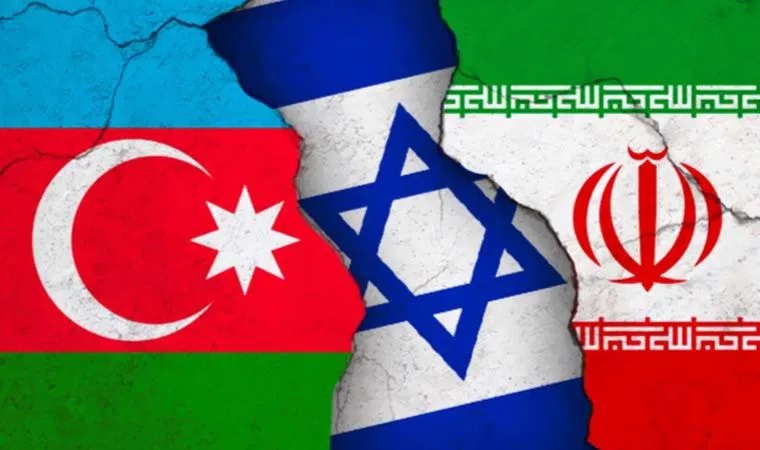
Azerbaijan plays a significant role in the relations between Iran and Israel based on the fact that Azerbaijan has historical and cultural ties with both states. Relations with these two states hold a special place in Azerbaijan's foreign policy. Although tensions between Iran and Israel have occasionally challenged the delicate balance between Azerbaijan and Iran, bilateral relations are generally stable thanks to the efforts made by both sides. However, in the light of the political developments in the region, there is a possibility that these relations may turn into a power struggle in the future.
Azerbaijan-Israel Relations
Before evaluating the current relations of these three states, it is important to carefully examine the historical ties between them. Azerbaijan's relations with both the states of Israel and Iran have a common historical background. In particular, the Mountain Jews, who have lived in Azerbaijan since before the common era, have played an important role in the development of friendly relations with Israel after Azerbaijan gained independence on 18 October 1991.
Today, Jews in Azerbaijan are divided into three main groups: Mountain Jews, Georgian Jews, and Ashkenazi (European) Jews. According to historian Moisey Kalankatli, the Mountain Jews, who settled in Azerbaijan in the 1st century BC,[1] are the oldest Jewish community in the country and have the highest Jewish population. Today, the Mountain Jews live a safe and secure life in Azerbaijan in accordance with their traditions. Georgian Jews are members of the Georgian diaspora[2] who previously lived in the territory of Georgia and who then migrated to Azerbaijan and settled there. Ashkenazi (European) Jews migrated to Azerbaijan along with other European communities in the 19th century when Baku became a rapidly industrializing city. This community made substantial contributions to the cultural, architectural, political, and economic development of Azerbaijan that are still felt today.
To summarize, throughout history, there have been no serious conflicts, discords, or tensions between the Azerbaijani people and the Jewish community. For this reason, the Jewish community lived freely in the first (1918-1920) and second (post-1991) republican periods of Azerbaijan without any concern about losing their identity or having their rights restricted.
Today, the Jewish community in Azerbaijan, which consists of approximately 7,200 people[3], has established its own schools and women's associations in various regions. Seven synagogues are active in the country, and there are also private Jewish schools with teachers brought from Israel. The Azerbaijani state protects the rights of minority Jews and guarantees them a peaceful life without any oppression.
Azerbaijan's diplomatic relations with Israel were established in the 1990s. Israel recognized Azerbaijan's independence in 1991, and since then there have been many official and unofficial visits between the two countries. In 1997, Israeli Prime Minister Binyamin Netanyahu visited Baku and held talks with then Azerbaijani President Heydar Aliyev[4].
The process of opening embassies between Azerbaijan and Israel has been asymmetrical. While the Israeli Embassy in Baku became operational in 1993[5], Azerbaijan's opening of an embassy in Tel Aviv was postponed until 29 March 2023. With this step, Azerbaijan sought not to lose the support of Islamic countries in the Nagorno-Karabakh conflict and also to avoid the reaction of Iran, with which it has sensitive relations. In the years that followed, relations expanded in areas such as security, defense, technology, communication, education, trade, and culture.[6]
Israel became one of Azerbaijan's most notable arms suppliers during the Second Nagorno-Karabakh War in 2020. In the period 2016-2020, 69% of Azerbaijan's arms imports came from Israel, while 17% of Israel's arms exports were directed to Azerbaijan in the same period[7]. These purchases continued in the following years, and military cooperation further strengthened the historical, cultural, and economic ties between the two countries. Commercial relations are not unilateral, as Azerbaijan is currently one of Israel's main energy suppliers and almost half of Israel's oil imports come from Azerbaijan[8]. In accordance with the agreement signed in March 2025, Azerbaijan's energy company plans to start natural gas exploration in Israeli territory. In short, Israeli-Azerbaijani relations are rapidly developing in a multidimensional manner and are of great importance for the fundamental interests of both states.
In addition to all these developments, Azerbaijan is in a position of strategic importance for Israel in terms of regional dynamics. In international politics, Israel's close relations with Azerbaijan are not limited to economic and diplomatic fields, but also include security and intelligence dimensions. Especially in recent years, some media outlets have put forward various allegations that Azerbaijani territory is being utilized by Israel to balance out Iran and keep it under pressure.
In this context, there have been some unconfirmed reports in the international press that the Sitalchay Air Base in Azerbaijan has been put at the service of Israeli officials[9] and that the Israeli intelligence agency Mossad has conducted espionage activities against Iran through this base, and even that documents and materials related to Iran's nuclear weapons programs have been seized. Although these allegations have been denied[10], Azerbaijan’s deepening cooperation with Israel is being carefully monitored by Iran.
Azerbaijan-Iran Relations
Unlike Azerbaijan's stable relations with its Jewish community, its historical ties with Iran have never been straightforward. Although the two countries share a common history, culture, architectural heritage, population, and religious values, their relations have experienced periods of stagnation and, at times, moments of peak tension. Nevertheless, there are deep-rooted ties that bind Azerbaijan and Iran. The Turkic-speaking population of Azerbaijani origin in northern Iran today stands out as both a potential point of rupture and a unifying factor. For this reason, the political rhetoric of the two countries may include sensitive terms such as “South Azerbaijan” and “North Iran.”
The history of diplomatic relations between Azerbaijan and Iran dates back to the establishment of the first republic in Azerbaijan. In 1920, Iran officially recognized the Azerbaijan Democratic Republic, while Azerbaijan opened its embassy in Tehran. After Azerbaijan joined the Soviet Union (USSR), relations between the two countries were mostly limited to cultural and scientific fields. However, developments in the final years of the USSR laid the groundwork for a new era in bilateral relations.
In December 1988, the demolition of the barbed-wire fence along the border between Azerbaijan and Iran by local residents removed the artificial barrier erected by the Soviets to separate the two peoples. After Azerbaijan gained its independence, Iran became one of the first countries to recognize Azerbaijan on 25 December 1991. In 1992, official diplomatic relations were established between the two countries, and embassies began operating in both countries. During the 1990s, a difficult period for Azerbaijan, Iran established economic, commercial, and humanitarian relations, particularly with the Nakhchivan Autonomous Republic. Iran's “Hilal Ahmar” organization provided humanitarian aid to Azerbaijanis who were forced to flee due to the war. These amicable and supportive relations reached a breaking point after Azerbaijan signed the “Deal of the Century” with Western oil companies in 1994. Iran perceived the agreement as a geopolitical threat that could result in political isolation and economic exclusion, and began to support Armenia while also pressuring Azerbaijan on the legal status of the Caspian Sea.[11] However, through the diligent diplomatic maneuvers of the Azerbaijani side, relations did not completely break down, and a certain stability was maintained through mutual agreements, diplomatic visits, and contacts.
Azerbaijan's Balance Policy Between Israel and Iran
Iran considers Israel's influence in Azerbaijan a threat and occasionally raises this issue in official statements. For example, although Israel did not directly participate in the “Three Brothers — 2021” military drill jointly organized by Türkiye, Azerbaijan, and Pakistan in 2021, Iran interpreted this drill as a military message from the forces allied with Israel and responded by conducting a military drill called “Khyber Conquerors” near the Azerbaijan-Armenia border. Following the exercise, Iran's Foreign Minister Hossein Amir-Abdollahian stated that the exercise was “a clear message to the Zionist regime and terrorist elements” and that they had conveyed to Azerbaijani authorities that they would never tolerate Israel's presence in a region so close to the Iranian border.[12]
Although the above claims have not been officially proven, Israel's strategic partnership with Azerbaijan is perceived as a serious threat by Iran. Considering the overall picture, it has been observed that Iran is also uncomfortable with Azerbaijan's military and diplomatic victory in the Second Karabakh War. Azerbaijan's recapture of Karabakh, for which it had historically been in conflict, has created a significant shift in the balance of power in the region. Furthermore, the presence of a large Turkic population speaking Azerbaijani Turkish in the northern regions of Iran makes this change even more sensitive for Iran.
The shift in the balance of power in the region has not only benefited Azerbaijan, but has also led to a weakening of Iran's regional influence. Iran has responded to these developments by taking various strategic and diplomatic measures. The 132-kilometer border line that came under Azerbaijan's control after the war meant the closure of the border between Iran and Armenia, thus Iran now shares a border with a strong Azerbaijan that has achieved military success rather than a weakened Armenia that has lost land. This situation is considered one of the important and negative consequences of the Karabakh War for Iran. A noteworthy development in this context is the statement made by Iran's Supreme Leader Ali Khamenei during his meeting with Turkish President Recep Tayyip Erdoğan at the Astana Summit on 19 July 2022, in which he said that “Iran will not allow any plan that will cause the closure of the border between Armenia and Iran.”[13] This statement clearly demonstrates Iran's reaction to the new order in the region.
Another issue that raises Iran's concerns about security is the plan to open the Zangezur Corridor. Iran sees this corridor not only as a transportation route but also as a major threat to its national security and regional interests. According to Iranian officials, the opening of the corridor will have the following negative consequences:
- The Iran-Armenia border will effectively disappear, and Iran's access to the Caucasus via Armenia will become restricted;
- Control over the Aras River will pass to Azerbaijan;
- Iran's land connection with Russia, an important partner, will be weakened;
- Iran will suffer economic losses as there will now be a direct connection between Azerbaijan and Nakhchivan, making the indirect one via Iran redundant;
- Iran will lose its advantage as a transit route between Europe and Asia, which will also reduce its role in China's Belt and Road Initiative;
- Demand for Iranian gas will decline if Turkmen gas starts being transported to Türkiye and Europe via this corridor;
- All these developments will weaken Iran's geopolitical influence in the region.[14]
Furthermore, from Iran's perspective, the opening of the Zangezur Corridor is also considered a threat to national security, as it could pave the way for an increase in the influence of the North Atlantic Treaty Organization (NATO - a military alliance of Western countries with which Iran has serious issues) in the region.[15]
Taking all these threats into account, Iran began to openly support Armenia after the Second Karabakh War and conducted the “Eghtedar/Might 1401” military drill in the region near the Azerbaijani border on 17–20 October 2022. This exercise was one of three military exercises conducted by Iran in the post-war period.[16] During this period of developments, Azerbaijan's decision to open an embassy in Israel in 2023, which it had postponed for many years, was interpreted by many commentators as a direct diplomatic response to Iran, and the said development was evaluated as a diplomatic blow to Iran.[17]
Despite all these tensions with Iran, Azerbaijan continues to shape its foreign policy in the region in line with its national interests and maintains its strategic partnership with Israel. However, Azerbaijan does not wish to sever diplomatic relations with Iran. In this context, Iranian President Masoud Pezeshkian's visit to Azerbaijan on 29 April 2025 can be seen as a diplomatic initiative to rebalance relations between the two countries. Another noteworthy aspect of the visit was Pezeshkian's speech in Turkish, and moreover, his recitation of a Turkish poem. This gesture has led to both positive and critical comments in the Azerbaijani public sphere. While Pezeshkiyan’s speech in Turkish was seen as a message of closeness to the Iranian Turks, who have been facing pressures over their identity for years, some circles perceived the speech as a symbolic message for the unification of North and South Azerbaijan.
In conclusion, it can be stated that Azerbaijan has attempted to pursue a balanced and stable foreign policy with both Iran and Israel throughout this process, attaching importance to the preservation of regional peace and stability. On the other hand, its steps to deepen cooperation with Türkiye in recent years and expand economic and trade relations can also be viewed as part of a strategy to promote the development of the region.
[1] “Azərbaycanda yaşayan yəhudilər”, Xalq Cəbhəsi, 15 May 2025, https://www.anl.az/down/meqale/xalqcebhesi/2016/avqust/503927.htm
[2] “Azərbaycanda yaşayan yəhudilər”, Xalq Cəbhəsi, 15 May 2025, https://www.anl.az/down/meqale/xalqcebhesi/2016/avqust/503927.htm
[3] Azerbaijan, 15 May 2025, https://www.worldjewishcongress.org/en/about/communities/AZ
[4] Emre Soylu, “İsrail’in Azerbaycan’ı Destekleme Nedenlerinin Stratejik Analizi”, Uluslararası İktisadi ve İdari Çalışmalar Dergisi, 15 May 2025, https://dergipark.org.tr/tr/download/article-file/4025737
[5] Azərbaycan-İsrail Münasibətləri, 16 May 2025, https://lib.aliyevheritage.org/az/8269149.html
[6] İsrail Dövləti, 16 May 2025, https://www.mfa.gov.az/az/category/asiya-ve-okeaniya/israil
[7] İsrail-Azərbaycan hərbi əməkdaşlığı: Hava limanlarına Azərbaycan təyyarələri enir, 16 May 2025, https://www.bbc.com/azeri/region-58179633
[8] When Israel starts looking like Azerbaijan, there’s a problem, 16 May 2025, https://www.middleeastmonitor.com/20180818-when-israel-starts-looking-like-azerbaijan-theres-a-problem/
[9] Azerbaycan'daki Sitalçay Hava Üssü İsrail'in Hizmetinde, 16 May 2025, https://www.welayetnews.com/content/34779
[10] Azerbaycan’da İsrail Üssü mü Var? Eski Ataşe açıkladı, 16 May 2025, https://avim.org.tr/tr/Bulten/AZERBAYCAN-DA-ISRAIL-USSU-MU-VAR-ESKI-ATASE-ACIKLADI
[11] Azərbaycan-İran münasibətləri, May 15, 2025, https://files.preslib.az/projects/azeriran/a1.pdf
[12] Pınar Özden Cankara, İran ve Ermenistan Gölgesinde israil’in Azerbaycan ile Stratejik İlişkileri, Uluslararası Afro-Avrasya Araştırmaları Dergisi, May 16, 2025, https://dergipark.org.tr/tr/download/article-file/2168821
[13] Fehim Taştekin, İran ve Azerbaycan arasında gerilim neden arttı?, BBC NEWS Türkçe, May 16, 2025, https://www.bbc.com/turkce/articles/c51kzkg4j48o
[14] Fehim Taştekin, İran ve Azerbaycan arasında gerilim neden arttı?, BBC NEWS Türkçe, May 16, 2025, https://www.bbc.com/turkce/articles/c51kzkg4j48o
[15] Zengezur Koridoru: İran projeye neden karşı çıkıyor?, May 20, 2025, https://www.bbc.com/turkce/articles/c1r4nr42wl4o
[16] Emre Soylu, “İsrail’in Azerbaycan’ı Destekleme Nedenlerinin Stratejik Analizi”, Uluslararası İktisadi ve İdari Çalışmalar Dergisi, May 15, 2025, https://dergipark.org.tr/tr/download/article-file/4025737
[17] Pərvanə Bayramova, İsrail Xarici İşlər Nazirliyi Azərbaycanın İsraildə səfirlik açması tarixi qərardır, Amerikanın Səsi, May 16, 2025, https://www.amerikaninsesi.org/a/israel-s-ministry-of-foreign-affairs-azerbaijan-s-opening-of-an-embassy-in-israel-is-a-historic-decision/6840157.html
© 2009-2025 Center for Eurasian Studies (AVİM) All Rights Reserved
No comments yet.
-
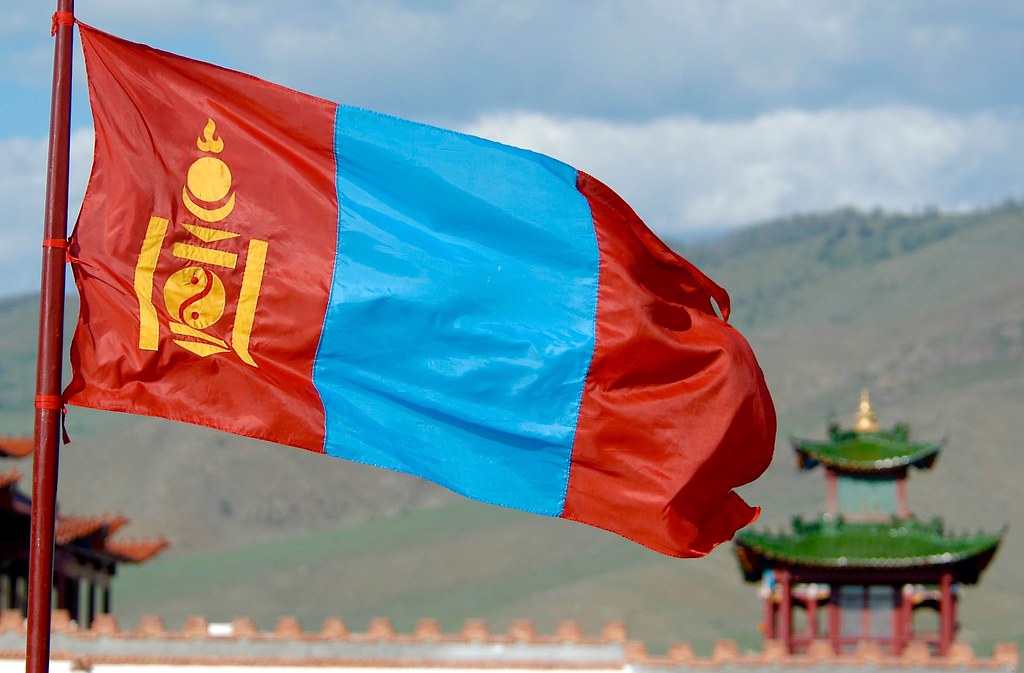 MONGOLIA’S SEARCH FOR BALANCE IN ITS FOREIGN POLICY
MONGOLIA’S SEARCH FOR BALANCE IN ITS FOREIGN POLICY
Gülperi GÜNGÖR 28.08.2020 -
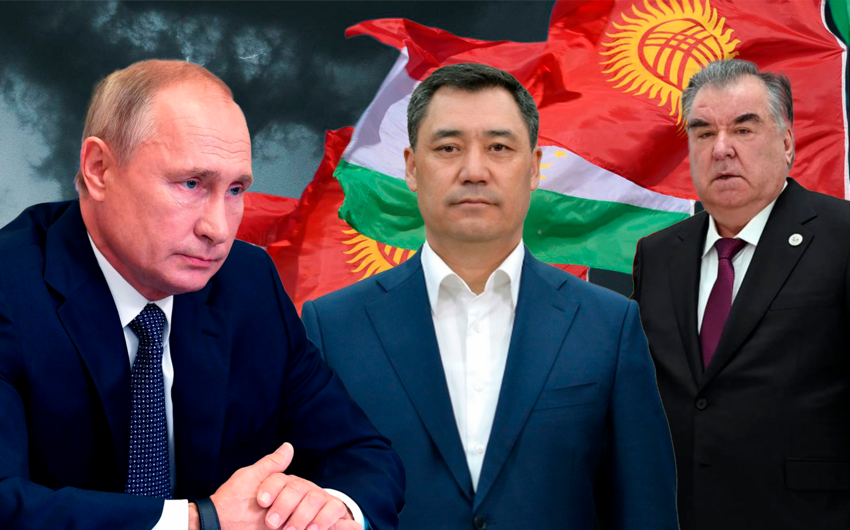 MORE THAN A LOCAL CONFLICT: THE KYRGYZSTAN-TAJIKISTAN BORDER DISPUTE
MORE THAN A LOCAL CONFLICT: THE KYRGYZSTAN-TAJIKISTAN BORDER DISPUTE
Gülperi GÜNGÖR 10.02.2023 -
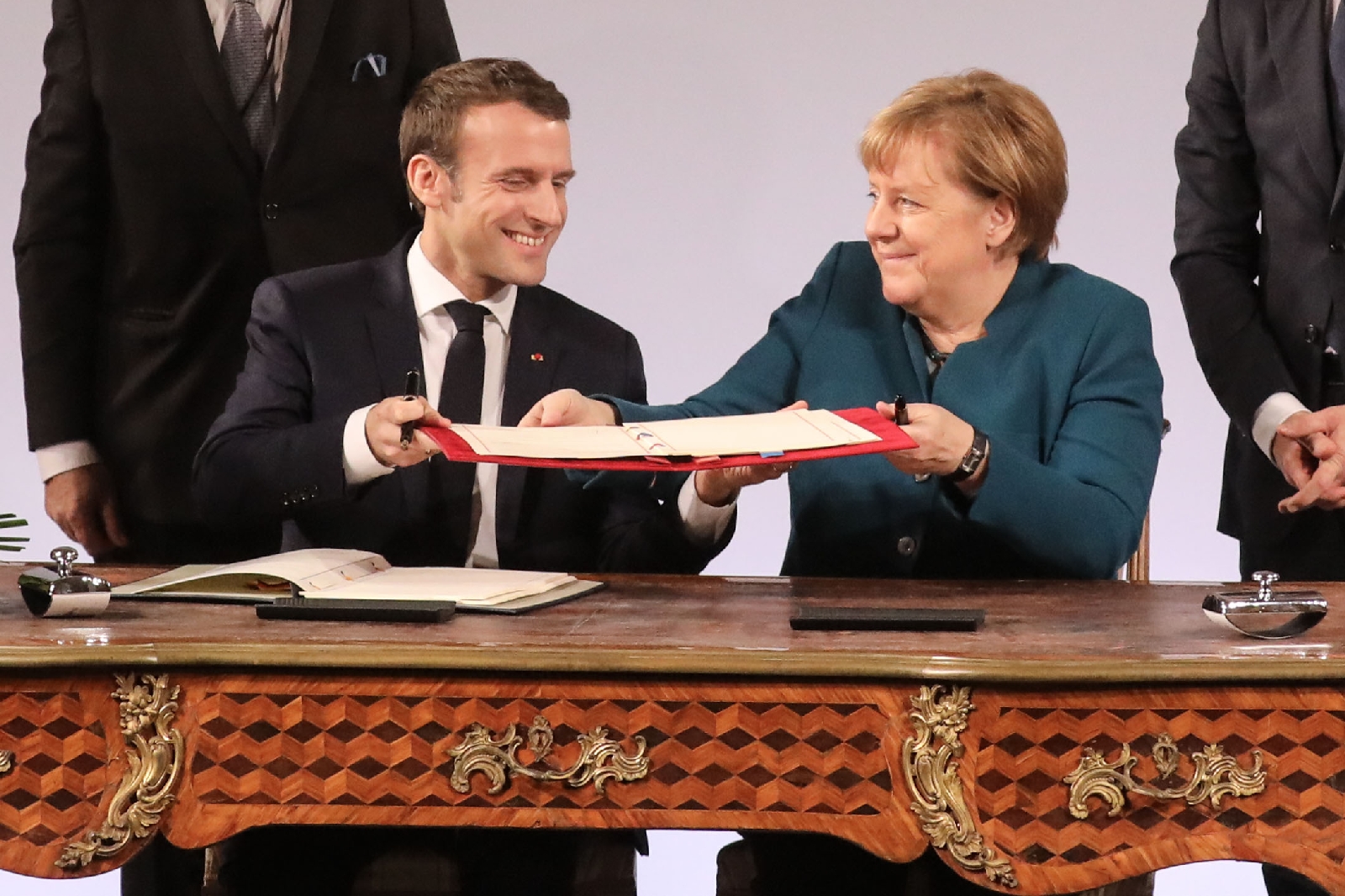 GERMAN-FRENCH JOINT CULTURAL INSTITUTES: TRANSFORMATION OF THE “CIVILIZING” MISSION OF WEST EUROPEAN COLONIALISM
GERMAN-FRENCH JOINT CULTURAL INSTITUTES: TRANSFORMATION OF THE “CIVILIZING” MISSION OF WEST EUROPEAN COLONIALISM
Teoman Ertuğrul TULUN 26.02.2019 -
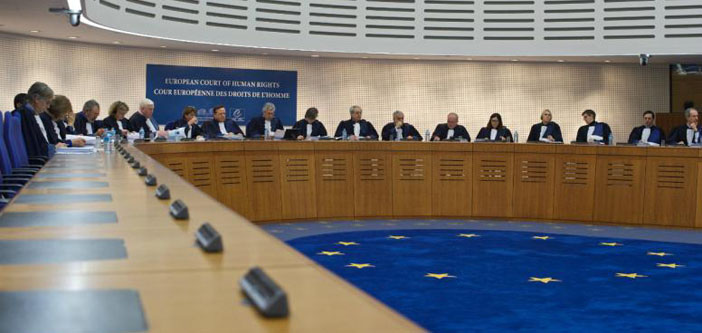 ARMENIAN ALLEGATIONS, LAW, AND POLITICAL LOBBYING
ARMENIAN ALLEGATIONS, LAW, AND POLITICAL LOBBYING
Gözde KILIÇ YAŞIN 26.05.2023 -
 COMMEMORATION OF THE 100TH ANNIVERSARY OF THE 1915 EVENTS AT ST. PETER’S BASILICA
COMMEMORATION OF THE 100TH ANNIVERSARY OF THE 1915 EVENTS AT ST. PETER’S BASILICA
Ali Murat TAŞKENT 21.04.2015
-
25.01.2016
THE ARMENIAN QUESTION - BASIC KNOWLEDGE AND DOCUMENTATION -
12.06.2024
THE TRUTH WILL OUT -
27.03.2023
RADİKAL ERMENİ UNSURLARCA GERÇEKLEŞTİRİLEN MEZALİMLER VE VANDALİZM -
17.03.2023
PATRIOTISM PERVERTED -
23.02.2023
MEN ARE LIKE THAT -
03.02.2023
BAKÜ-TİFLİS-CEYHAN BORU HATTININ YAŞANAN TARİHİ -
16.12.2022
INTERNATIONAL SCHOLARS ON THE EVENTS OF 1915 -
07.12.2022
FAKE PHOTOS AND THE ARMENIAN PROPAGANDA -
07.12.2022
ERMENİ PROPAGANDASI VE SAHTE RESİMLER -
01.01.2022
A Letter From Japan - Strategically Mum: The Silence of the Armenians -
01.01.2022
Japonya'dan Bir Mektup - Stratejik Suskunluk: Ermenilerin Sessizliği -
03.06.2020
Anastas Mikoyan: Confessions of an Armenian Bolshevik -
08.04.2020
Sovyet Sonrası Ukrayna’da Devlet, Toplum ve Siyaset - Değişen Dinamikler, Dönüşen Kimlikler -
12.06.2018
Ermeni Sorunuyla İlgili İngiliz Belgeleri (1912-1923) - British Documents on Armenian Question (1912-1923) -
02.12.2016
Turkish-Russian Academics: A Historical Study on the Caucasus -
01.07.2016
Gürcistan'daki Müslüman Topluluklar: Azınlık Hakları, Kimlik, Siyaset -
10.03.2016
Armenian Diaspora: Diaspora, State and the Imagination of the Republic of Armenia -
24.01.2016
ERMENİ SORUNU - TEMEL BİLGİ VE BELGELER (2. BASKI)
-
AVİM Conference Hall 24.01.2023
CONFERENCE TITLED “HUNGARY’S PERSPECTIVES ON THE TURKIC WORLD"









